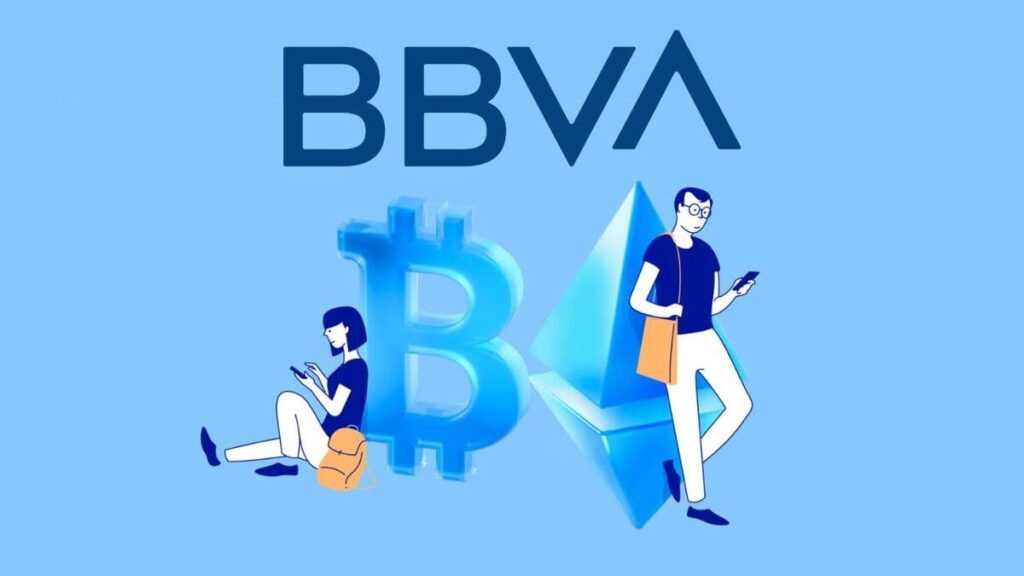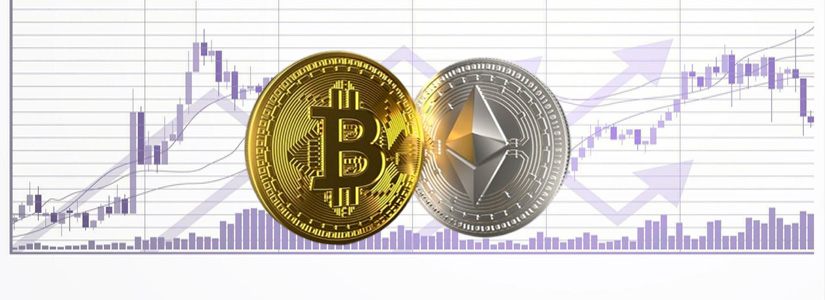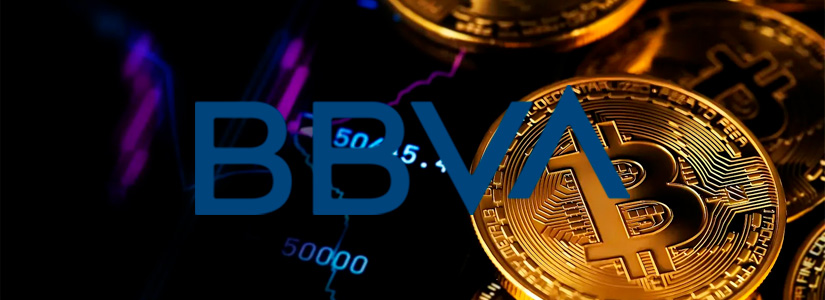TL;DR
- BBVA enabled the purchase, sale, and custody of Bitcoin and Ethereum for clients in Spain, operable exclusively with biometrics through its mobile app.
- The bank will manage asset custody internally without intermediaries, charging a 1.49% fee for trades and 4% for external transfers. Custody will be free of charge.
- This initiative follows the model launched in Switzerland and Turkey and makes Spain the third market where BBVA integrates cryptoassets into its services.
BBVA has enabled the purchase, sale, and custody of Bitcoin and Ethereum for all its retail clients in Spain. From now on, any adult user can trade these two cryptocurrencies directly through the bank’s mobile application.
The institution will manage custody of the assets within its own infrastructure, without relying on third parties, and will apply different fees depending on the operation. Buying or selling will incur a 1.49% fee, while transfers to external wallets will be charged 4%. The custody service will remain free of charge.
To access these features, users must have biometrics enabled on their devices. This requirement ensures that every transaction is validated using the account holder’s biometric data. BBVA will not provide advice or recommendations on cryptocurrencies. The service is offered solely at the client’s request, through the app, without the involvement of intermediaries.
The launch was formalized after submitting the corresponding notification to the Comisión Nacional del Mercado de Valores (CNMV), in compliance with the European MiCA regulation. This regulatory framework governs the issuance and provision of cryptoasset services within the European Union, offering greater legal clarity and specific protections for users.
BBVA Now Operates Crypto Services in Three Markets
This initiative mirrors the model BBVA introduced in Switzerland in 2021, where it initially offered Bitcoin trading and custody, later expanding to Ethereum and USDC. Its Turkish subsidiary later launched a similar service that includes other assets like Solana, XRP, and AVAX. With this move, Spain becomes the bank’s third active market for cryptocurrency operations.
According to the institution, this offering will allow Bitcoin and Ethereum transactions to be integrated into a traditional banking platform with security standards equivalent to its other digital financial products. Additionally, BBVA announced plans to evaluate the inclusion of new assets and tools depending on market demand and regulatory conditions.
With this rollout, BBVA becomes one of the few traditional banks to give its clients direct access to cryptocurrencies through its own infrastructure













